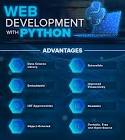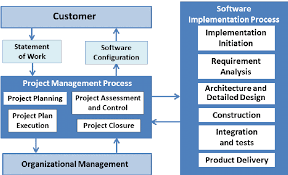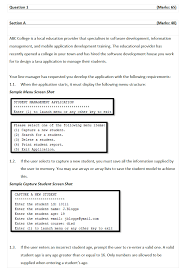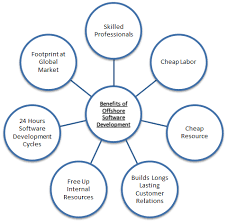Ensuring Robust Cloud Network Security: Safeguarding Your Digital Assets
In today’s digital age, cloud network security plays a crucial role in safeguarding sensitive data and ensuring the integrity of online operations. As businesses increasingly rely on cloud services to store and process information, the need for robust security measures has never been greater.
The Importance of Cloud Network Security
Cloud network security encompasses a range of practices and technologies designed to protect cloud-based systems, applications, and data from cyber threats. These threats can include malware, unauthorized access, data breaches, and other malicious activities that can compromise the confidentiality, integrity, and availability of critical information.
Key Components of Cloud Network Security
Effective cloud network security involves implementing multiple layers of defense to mitigate risks and vulnerabilities. Some key components include:
- Encryption: Encrypting data both in transit and at rest helps prevent unauthorized access to sensitive information.
- Access Control: Implementing strict access controls and authentication mechanisms ensures that only authorized users can access resources within the cloud network.
- Firewalls: Firewalls help monitor and control incoming and outgoing network traffic to prevent unauthorized access and detect suspicious activities.
- Intrusion Detection Systems (IDS) and Intrusion Prevention Systems (IPS): IDS and IPS tools help identify and respond to potential security incidents in real-time.
- Vulnerability Management: Regularly scanning for vulnerabilities and applying patches helps address security weaknesses before they can be exploited by attackers.
Challenges in Cloud Network Security
Despite advancements in cloud security technologies, organizations face several challenges when it comes to securing their cloud networks. These challenges include:
- Data Privacy Concerns: Ensuring compliance with data privacy regulations while storing data in the cloud can be complex.
- Shared Responsibility Model: Understanding the shared responsibility model between cloud service providers and customers is essential for effective security implementation.
- Evolving Threat Landscape: Cyber threats are constantly evolving, requiring organizations to stay vigilant and adapt their security strategies accordingly.
The Future of Cloud Network Security
As technology continues to advance, the future of cloud network security will likely see increased emphasis on automation, artificial intelligence, and machine learning capabilities to enhance threat detection and response. Organizations will need to adopt a proactive approach to cybersecurity by continuously monitoring their cloud environments, educating employees on best practices, and investing in cutting-edge security solutions.
In conclusion, maintaining strong cloud network security is essential for protecting valuable assets, maintaining customer trust, and ensuring business continuity in an increasingly interconnected world. By prioritizing cybersecurity measures and staying informed about emerging threats, organizations can effectively mitigate risks associated with operating in the cloud.
Top 5 Advantages of Cloud Network Security: Protecting Data, Scaling Efficiently, and More
Top 6 Challenges in Cloud Network Security: Breaches, Privacy, and Cost Concerns
- Potential for data breaches if security measures are not properly implemented
- Dependency on internet connectivity may impact accessibility to cloud resources
- Concerns about data privacy and compliance with regulations when storing sensitive information in the cloud
- Shared responsibility model between cloud service providers and customers can lead to confusion over security responsibilities
- Risk of unauthorized access or insider threats compromising cloud network security
- Cost implications of investing in robust security solutions and ongoing maintenance to protect cloud environments
Enhanced Data Protection
Enhanced data protection is a significant advantage of cloud network security. By utilizing robust security measures like encryption and access controls, sensitive data stored in the cloud is shielded from unauthorized access. Encryption ensures that information remains confidential both during transmission and while at rest, making it significantly more challenging for cybercriminals to intercept and exploit valuable data. Access controls further enhance data protection by restricting system entry to authorized users only, reducing the risk of breaches and ensuring that sensitive information remains secure within the cloud environment.
Scalability
Scalability is a significant advantage of cloud network security as it allows security solutions to seamlessly expand and adapt to meet the evolving requirements of a growing business. Cloud security services can effortlessly scale up or down based on the organization’s needs, ensuring that protection remains robust and effective even as operations expand. This flexibility in scalability not only enhances the efficiency of security measures but also provides peace of mind knowing that the level of protection can readily adjust to accommodate changes in business size and complexity without sacrificing the integrity of the security infrastructure.
Cost-Effectiveness
Cloud network security’s cost-effectiveness is a significant advantage, as cloud-based security services frequently present a more economical option compared to traditional on-premises security infrastructure. By leveraging cloud-based solutions, businesses can lower their initial investment costs and ongoing maintenance expenses, making robust security measures more accessible and affordable. This cost-saving benefit allows organizations to allocate resources more efficiently while still ensuring the protection of their valuable data and assets in the cloud environment.
Centralized Management
Cloud network security offers the significant advantage of centralized management, enabling organizations to efficiently oversee security policies and updates across various devices and locations. With this capability, administrators can implement consistent security measures, enforce compliance standards, and deploy updates seamlessly throughout the cloud network infrastructure. This centralized approach not only streamlines security management but also enhances visibility and control over the entire network, ensuring a more robust defense against potential cyber threats.
Improved Compliance
One significant benefit of cloud network security is the improved compliance it offers. Many cloud security solutions are specifically designed to assist organizations in meeting regulatory compliance requirements by implementing industry-standard security practices. By leveraging these solutions, businesses can ensure that their cloud environments adhere to relevant regulations and standards, reducing the risk of non-compliance penalties and safeguarding sensitive data from potential breaches.
Potential for data breaches if security measures are not properly implemented
The potential for data breaches looms as a significant con of cloud network security when security measures are not adequately implemented. Inadequate encryption, weak access controls, and lack of regular vulnerability assessments can create vulnerabilities that cybercriminals may exploit to gain unauthorized access to sensitive data stored in the cloud. A single breach can have far-reaching consequences, including financial losses, reputational damage, and legal liabilities for organizations that fail to prioritize robust security practices in their cloud environments. It underscores the critical importance of proactively addressing security gaps to mitigate the risk of data breaches and safeguard valuable information from malicious actors.
Dependency on internet connectivity may impact accessibility to cloud resources
One significant con of cloud network security is the dependency on internet connectivity, which can impact the accessibility of cloud resources. In situations where internet connectivity is unstable or unavailable, users may face challenges accessing critical data and applications stored in the cloud. This dependency on an external network connection introduces a potential point of failure that can disrupt business operations and productivity, highlighting the importance of implementing contingency plans and redundancies to mitigate the risks associated with reliance on internet connectivity for accessing cloud resources.
Concerns about data privacy and compliance with regulations when storing sensitive information in the cloud
One significant con of cloud network security is the heightened concerns about data privacy and compliance with regulations when storing sensitive information in the cloud. Organizations face challenges in ensuring that their data is adequately protected and that they meet the stringent requirements outlined by various data privacy laws and industry regulations. The shared responsibility model between cloud service providers and customers adds complexity to this issue, as organizations must navigate the intricacies of data governance while relying on third-party vendors for cloud infrastructure. Failure to address these concerns effectively can result in regulatory fines, reputational damage, and potential breaches of customer trust.
Shared responsibility model between cloud service providers and customers can lead to confusion over security responsibilities
The shared responsibility model between cloud service providers and customers can pose a significant con in cloud network security, as it may lead to confusion and ambiguity regarding security responsibilities. In this model, while the cloud service provider is responsible for securing the infrastructure and underlying services, customers are typically accountable for securing their data and applications. This division of responsibilities can create gaps in understanding, potentially resulting in misconfigurations, oversight of critical security measures, or assumptions about who is responsible for addressing specific security threats. As a result, the lack of clarity in security roles and responsibilities within the shared model can introduce vulnerabilities and increase the risk of security breaches within cloud environments.
Risk of unauthorized access or insider threats compromising cloud network security
The risk of unauthorized access or insider threats compromising cloud network security poses a significant concern for organizations utilizing cloud services. Unauthorized access by malicious actors or even well-intentioned insiders with access to sensitive data can lead to data breaches, intellectual property theft, and disruption of critical operations. Such incidents can have far-reaching consequences, including financial losses, damage to reputation, and regulatory penalties. Mitigating this con of cloud network security requires implementing robust access controls, regular monitoring of user activities, and comprehensive employee training on cybersecurity best practices to minimize the likelihood of unauthorized access or insider threats jeopardizing the integrity of cloud environments.
Cost implications of investing in robust security solutions and ongoing maintenance to protect cloud environments
The cost implications of investing in robust security solutions and ongoing maintenance to protect cloud environments can be a significant con for businesses. Implementing effective cloud network security measures often requires a substantial financial investment in acquiring advanced security tools, hiring skilled cybersecurity professionals, and conducting regular security audits. Additionally, the ongoing maintenance and monitoring of these security solutions can incur additional expenses over time. For organizations with limited budgets or competing priorities, the high costs associated with maintaining strong cloud network security may pose a challenge in achieving comprehensive protection against evolving cyber threats.











